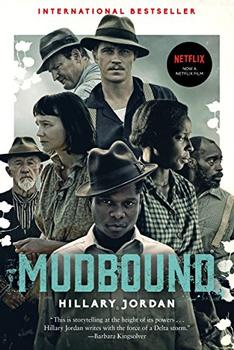Book Club Discussion Questions
In a book club? Subscribe to our Book Club Newsletter!
Please be aware that this discussion guide will contain spoilers!
-
The setting of the Mississippi Delta is intrinsic to
Mudbound. Discuss the ways in which the land functions as a character in
the novel and how each of the other characters relates to it.
-
Mudbound is a chorus, told in six different voices.
How do the changes in perspective affect your understanding of the story?
Are all six voices equally sympathetic? Reliable? Pappy is the only main
character who has no narrative voice. Why do you think the author chose not
to let him speak?
-
Who gets to speak and who is silent or silenced is a central
theme, the silencing of Ronsel being the most literal and brutal
example. Discuss the ways in which this theme plays out for the other
characters. For instance, how does Laura's silence about her unhappiness on
the farm affect her and her marriage? What are the consequences of Jamie's
inability to speak to his family about the horrors he experienced in the
war? How does speaking or not speaking confer power or take it away?
-
The story is narrated by two farmers, two wives and mothers,
and two soldiers. Compare and contrast the ways in which these parallel
characters, black and white, view and experience the world.
-
What is the significance of the title? In what ways are each
of the characters bound — by the land, by circumstance, by tradition, by the
law, by their own limitations? How much of this binding is inescapable and
how much is self-imposed? Which characters are most successful in freeing
themselves from what binds them?
-
All the characters are products of their time and place, and
instances of racism in the book run from Pappy’s outright bigotry to Laura’s
more subtle prejudice. Would Laura have thought of herself as racist, and if
not, why not? How do the racial views of Laura, Jamie, Henry, and Pappy
affect your sympathy for them?
-
The novel deals with many thorny issues: racism,
sexual politics, infidelity, war. The characters weigh in on these issues,
but what about the author? Does she have a discernable perspective, and if
so, how does she convey it?
-
We know very early in the book that something terrible is
going to befall Ronsel. How does this sense of inevitability affect the
story? Jamie makes Ronsel responsible for his own fate, saying "Maybe that's
cowardly of me, making Ronsel's the trigger finger." Is it just cowardice,
or is there some truth to what Jamie says? Where would you place the turning
point for Ronsel? Who else is complicit in what happens to him, and why?
-
In reflecting on some of the more difficult moral choices
made by the characters — Laura's decision to sleep with Jamie, Ronsel's
decision to abandon Resl and return to America, Jamie's choice during the
lynching scene, Florence's and Jamie's separate decisions to murder Pappy —
what would you have done in those same situations? Is it even possible to
know? Are there some moral positions that are absolute, or should we take
into account things like time and place when making judgments?
-
How is the last chapter of Mudbound different from
all the others? Why do you think the author chose to have Ronsel address
you, the reader, directly? Do you believe he overcomes the formidable
obstacles facing him and finds "something like happiness"? If so, why
doesn't the author just say so explicitly? Would a less ambiguous ending
have been more or less satisfying?
Unless otherwise stated, this discussion guide is reprinted with the permission of Algonquin Books.
Any page references refer to a USA edition of the book, usually the trade paperback version, and may vary in other editions.
